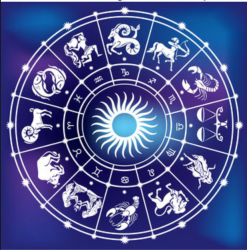Once again, Staff Writer Sam Azanza complains about something. This time, it’s about Barnard’s roommate questionnaire. As always, please take their articles with a grain of salt.
You hear it on tours, see it on flyers, and read it on the website: Barnard’s roommate questionnaire is extremely successful, highly personalized, and completely foolproof. However, with the main questions as “will your room be a social space or a study space,” “what time do you sleep,” and “do you wear headphones while listening to music,” it’s extremely rare that you’ll end up with a perfect match.
My roommate story is rare; I got extremely lucky. We’re both international students who never sleep and love having people over. We’re great at living together and even better at being friends. We even have the same taste in music, movies, and football (soccer) teams. Before I met her, I thought there was no way that Barnard could pair me with someone great based on only these questions. They seemed way too generic considering I would be living with a complete stranger for an entire school year. After getting to know her, I believed that, miraculously, Barnard actually wasn’t false advertising. Being here for almost two semesters, however, I’ve heard way more horror stories than I thought I would.

The real Barnard seal via Google Images
It’s sad that people don’t enjoy their roommates as much as I do. Getting placed with a great roommate shouldn’t be by chance, which is why I’m proposing these minor changes to the roommate questionnaire. Sure, conflict is natural, especially when living with a person. But it comes to a point where communication stops working to fix all the problems you have with someone you were randomly assigned to live with.
The idea came into fruition when my roommate and I compared co-stars. We turned out to be completely compatible. It was a revelation, like finding a seat at Butler during finals season. Thus, I concluded, to make life easier for everyone, Barnard ResLife should completely change the roommate questionnaire to just three questions: date of birth, time of birth, and location of birth.
It’ll make life easier for the incoming first-years who choose to do random selection– we can probably commission some Compsci majors to create an algorithm that automatically matches all the compatible people. I’m sure all the horoscope-obsessed queers will happily be part of the matching process (it’s all we do, really). They could even put everyone who is remotely compatible on the same floor. I’m coming up with revolutionary ideas here.
And for all of you who don’t believe in astrology, I’d be enlightened to know how the moon in transit doesn’t affect humans, who are 60% water.


 3 Comments
3 Comments
3 Comments
@libra sun, sagittarius moon, aquarius rising i’ve been studying astrology for almost six years and i 100% believe you can find compatible relationships (roommates, friendships, etc) but the way this post made me fucking CACKLE i literally am laughing so hard like barnard would have to hire professional astrologers to analyze thousands of birth charts against each other through so many different factors…like it’s a nice idea but so unrealistic
@Really needs one question Do you smell?
@Horoscope-obsessed queer Pairing up incompatible astrological signs as roommates is in violation of the Geneva Convention.